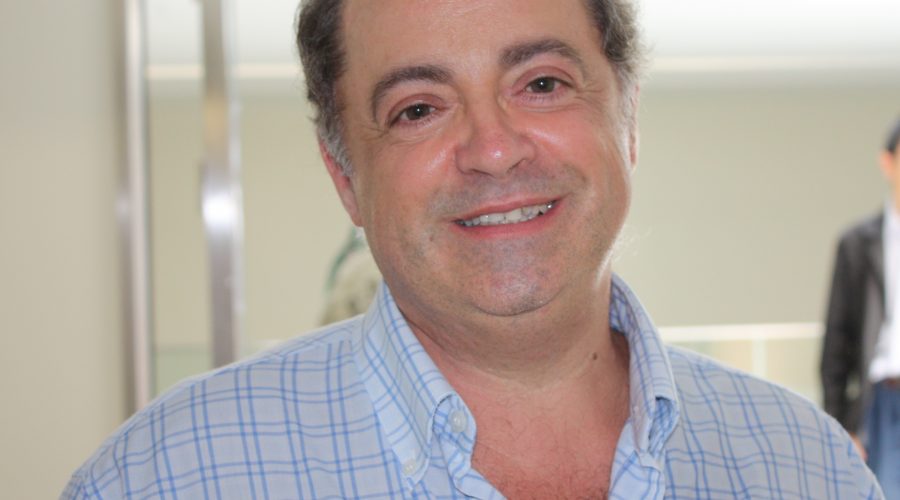IMDEA Networks

“Although it is hard, a science career is never dull”
30 September 2015

Interview with Fernando Boavida, Visiting Professor, IMDEA Networks Institute
1. To begin this interview, we are curious about how you were called to the life of science. When and why did you decide to become a scientist?
I’ve always liked science and technology. Even when I was in high school I never missed an opportunity to further explore areas such as mathematics and physics on my own, which were my favorite subject areas. Thus, the decision to take electrical engineering and, later on, computer engineering was quite natural for me. Then, back in 1983, when I joined the University of Coimbra (Portugal) as a research assistant there was no turning back. Although it is hard, a science career is never dull and I guess this is, in fact, what attracted and still attracts me to it. Currently and since 2005, I’m a Full Professor at the University of Coimbra within the Department of Informatics Engineering.
2. What training and background do you have as a researcher?
My basic training is that of Electrical Engineering, in the telecommunications area. Upon finishing my B.Sc. I started working on computer networks, implementing and experimenting with medium access control protocols for token bus, token ring, and carrier sense local area networks. From that I moved to network, transport, and application protocols. Currently, my research interests are on wireless sensor networks and the Internet of Things. So computer networks and the Internet are my “natural” environment. I’ve always been involved in research and was one of the co-founders of the Centre for Informatics and Systems at the University of Coimbra (CISUC) back in 1990.
3. How did you get the opportunity to come and work in Madrid? What institutions have you been connected to so far?
The opportunity arose through Prof. Arturo Azcorra. I know Prof. Azcorra since 2002, through the participation in European networks of excellence and projects. I can say that we have a long record of fruitful collaboration. In 2009 he kindly invited me to spend one semester at Universidad Carlos III de Madrid as visiting professor and this allowed me not only to closely know the people and their work at UC3M but also at IMDEA Networks. In general I see all collaboration with foreign universities and research institutes as extremely positive, and this is why I regularly visit and keep collaboration with institutions such as the University of Bern, University of Lancaster and University of Oslo, among several others.
4. What interested you most about the IMDEA project? What made you want to become involved?
What attracted me to the IMDEA Networks Institute, in addition to the fact that its main research areas largely coincide with mine, was that it is now recognized as a very dynamic, world-class research institute in the networking field. Naturally, this is the result of a very successful strategy of internationalization, human resources, advanced training, and knowledge transfer. I think this is the right way to go when one wants to have impact both on the research community and on the society in general.
5. In what research lines will you be working? What specific results do you expect to see?
I intend to carry out joint research in the area of Internet of Things and Connected Smart Objects, with emphasis on, but not restricted to, people-to-things and people-to-people interactions. The main objective is the research of solutions that can support middleware, platforms and applications in areas such as smart cities, e-learning, and e-health contexts, with the aim of demonstrating their use in enhancing the autonomy and quality of life of citizens. In these contexts, I will aim at identifying the needs and means towards health and general monitoring, safety, assistance, ubiquitous location, context-awareness, autonomy, security and privacy of the involved target user types.
6. Did you know Spain before joining IMDEA? What do you like best about Madrid?
The history of Spain and Portugal are so intertwined that it is almost impossible for a Portuguese citizen not to know something about Spain, although I must recognize that in general there is a low level of mutual knowledge. Spanish history and culture are incredibly rich and this is why one of my latest hobbies is to learn everything I can about Spain, including literature, art, monuments and language. Moreover, I keep regular contacts with friends in several Spanish cities, such as Madrid, Barcelona, Málaga, Granada and Valencia. I find Madrid an amazing city, with fantastic museums, architecture, monuments and parks.


Among the many hobbies favored by Fernando Boavida are traveling and outdoor activities, as well as exercising, reading and drawing. Here he appears on the beach, hiking, visiting the Alhambra in Granada, reading and drawing.



Recent Comments